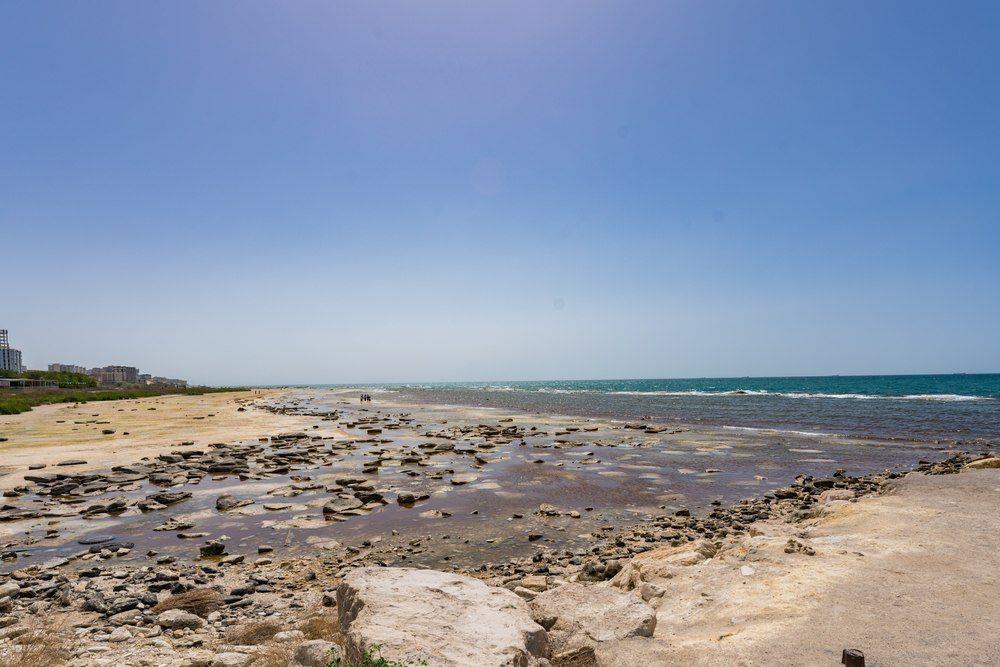
Azerbaijan Sounds Alarm Over Shallowing Of Caspian Sea
Azerbaijan's Deputy Ecology Minister Rauf Hajiyev told Reuters that the sea had been getting shallower for decades, but figures showed that the trend was accelerating.
Its level has fallen by 0.93 metres (3 ft) in the past five years, by 1.5 metres in the last 10, and 2.5 metres in the past 30, he said in an interview, estimating the current rate of decline at 20-30 cm per year.
"The retreat of the coastline changes natural conditions, disrupts economic activity and creates new challenges for sustainable development," said Hajiyev, who represents Azerbaijan in a joint working group with Russia that met for the first time in April to discuss the problem.
Despite worsening relations between the two countries, according to the protocol signed between the two countries the working group plans to approve a joint programme online in September for monitoring and responding to the issue.
Russia links the problem mainly to climate change but Azerbaijan also blames, opens new tab Russia's construction of dams on the Volga River which provides 80% of the water entering the Caspian.
Hajiyev said the falling water level was already affecting the
lives of coastal populations and the work of ports. About 4 million
people live on the coast of Azerbaijan, and about 15 million in the
Caspian region as a whole.
He said ships are facing increased difficulties when entering and
manoeuvring in the port of Baku, Azerbaijan's capital. This is
reducing cargo capacity and raising logistics costs, he added.
Transportation of oil and oil products through the Dubendi oil terminal, the largest in the Azerbaijani waters of the Caspian Sea, fell to 810,000 tons in the first half of 2025 from 880,000 in the same period of last year, according to Eldar Salakhov, director of the Baku International Sea Port.
He linked the decline to the falling water level, which he said was making it necessary to carry out major dredging work to ensure stable and uninterrupted port operations.
In 2024, more than 250,000 cubic meters of dredging were carried out at the Dubendi oil terminal to ensure that the largest tankers could enter without restrictions, he told Reuters.
In April, the Baku Shipyard finished building a new dredging vessel, the Engineer Soltan Kazimov, which is due to enter service shortly. Salakhov said it would be able to deepen the bottom to 18 metres in order to help maintain the port's capacity.
Hajiyev, the deputy minister, said the retreat of the waters was destroying wetlands, lagoons, and reed beds and threatening the survival of some marine species.
The biggest blow is to sturgeon, prized for their caviar, which are already under threat of extinction. They are losing up to 45% of their summer and autumn habitats and being cut off from their traditional spawning grounds in rivers.
Caspian seals are also threatened by the shrinking sea area and disappearance of seasonal ice fields in the north, where they breed, he added.
"With a 5-metre drop in the sea level, seals lose up to 81% of their breeding sites, and with a 10-metre drop, they are almost completely deprived of suitable sites," Hajiyev said.
Legal Disclaimer:
MENAFN provides the
information “as is” without warranty of any kind. We do not accept
any responsibility or liability for the accuracy, content, images,
videos, licenses, completeness, legality, or reliability of the information
contained in this article. If you have any complaints or copyright
issues related to this article, kindly contact the provider above.


















Comments
No comment